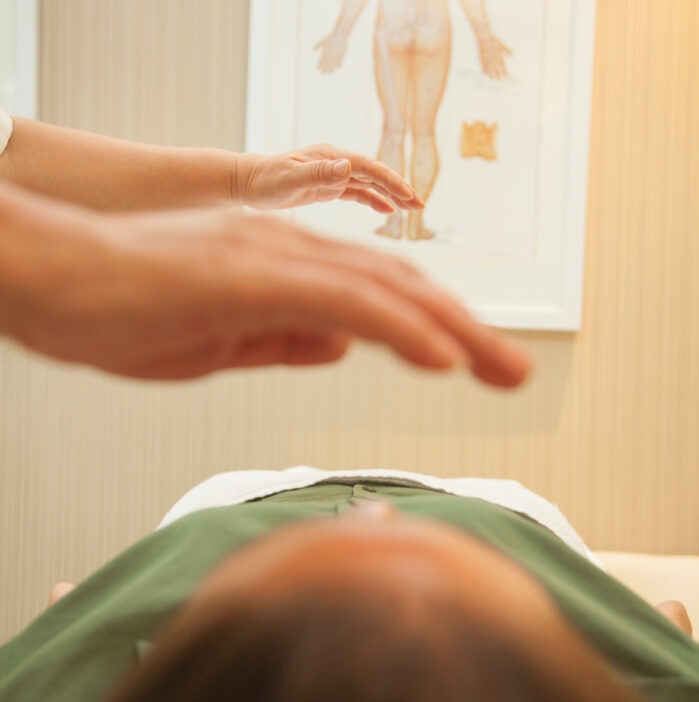The U.S. Centers for Disease Control and Prevention (CDC) has been urging everyone to thoroughly and frequently wash their hands since reports of the coronavirus outbreak in China, highlighting the long recognized practice of hand washing as a tried and true infection control measure.1 A little known fact is that among all health care providers, physicians are known to be the most reluctant to wash their hands while caring for patients.2
Hungarian physician Ignaz Semmelweis first observed in 1846 that when physicians washed their hands between working with cadavers and assisting at births, death rates plummeted. His findings were met with great skepticism by doctors at the time, who were angry at being blamed for patients dying. After Louis Pasteur and Joseph Lister published their findings about the need to maintain antiseptic conditions during surgery, the benefits of good hand hygiene to prevent transmission of infection slowly became universally accepted. The World Health Organization (WHO) states that even in resource-rich settings, hand washing compliance can be as low as zero percent, with compliance levels most frequently well below 40 percent.3
Healthcare-Acquired Infections Associated With Poor Hand Hygiene
Hand carriage of resistant pathogens has repeatedly been shown to be associated with healthcare-associated infections (HAI).4 Microbes that can be spread on the hands of health-care staff can include Staphylococcus aureus (including MRSA), Streptococcus pyogenes (Group A Strep), vancomycin-resistant Enterococcus (VRE), Klebsiella, Enterobacter, Pseudomonas, Clostridium difficile, Candida, Rotavirus, Adenovirus, Hepatitis A virus, and Norovirus.
Good hand hygiene is the single most important, simplest, and least expensive means of reducing the prevalence of infections acquired in healthcare settings. Healthcare-associated infections prolong recovery time and hospital stays, result in disability, increase medical costs, and pose life-threatening risks for patients.
The CDC reports that on any given day, about one in 31 hospital patients has at least one HAI. In 2015 there were an estimated 687,000 HAIs in U.S. acute care hospitals and 72,000 patients died from infections acquired during their hospitalizations.5 Up to 56 percent of neonatal deaths among babies born in hospitals are due to infections.6
Although HAI is the most frequently reported adverse event in health care, its true global burden remains unknown because of the difficulty in gathering reliable data.7 A 2013 study estimated that the total costs for five major infections acquired in health care settings in the U.S. were $9.8 billion.
Physicians Wash Hands Less Than Other Health Care Providers
Hand washing has been recognized as so critical to infection control and good patient care that it is included in the American Medical Association’s (AMA) Code of Medical Ethics. While Section 8.7 “Routine Universal Immunization of Physicians” allows for physicians to exempt from vaccination due to medical, religious, or philosophic reasons, they are not exempt from hand washing: “Conscientious participation in routine infection control practices, such as hand washing and respiratory precautions, is a basic expectation of the profession.”8
Despite this, studies9 10 11 12 13 have documented the reluctance of physicians, more than other health care providers, to wash their hands while caring for patients, and physician adherence to hand hygiene remains low in most hospitals.14
Why don’t physicians wash their hands?
While there are technical explanations, human factors such as social norms, perceived risk, role models, perceived knowledge, and motivation, play a role.15 One study discovered that self-protection, i.e. physicians engage in hand washing to protect themselves from acquiring infections rather than to ensure patient safety, is more important for physician compliance, and that some physicians believe there is a lack of evidence that hand washing is effective in preventing cross-infection.16
Barriers to good hand hygiene
Staff hierarchy also appears to affect hand hygiene compliance in healthcare settings, including status (physician compliance is worse than nurses), being male, lack of role models among colleagues or superiors, and forgetfulness.
Clinical factors include working in an intensive care unit, working during the week (weekend compliance was better), being involved in activities with high risk of cross contamination, understaffing/overcrowding/insufficient time, patient needs taking priority, and feeling that hand hygiene interfered with the worker-patient relationship.
Environmental and behavioral factors include the belief that wearing gowns or gloves obviates the need for hand hygiene, hand washing causing skin irritation or dryness, inconveniently placed sinks and lack of soap and paper towels, lack of knowledge of protocols, skepticism regarding the value of hand hygiene, disagreement with the recommendations, and lack of institutional priority/sanctions for non-compliers.17
According to Erin DuPree, MD, chief medical officer and vice president with the Joint Commission Center for Transforming Healthcare, the failure of many healthcare workers to practice proper hand hygiene techniques “is a complex problem that isn’t easy to solve. A simple slogan or campaign isn’t enough, nor is demanding that healthcare workers try harder. Comprehensive, systematic and sustainable change is the only solution to the problem.”18
Good hand hygiene reduces infections and costs
A WHO report on the evidence of hand hygiene on transmission of multi-drug resistant infections in healthcare settings cites a study that showed that when hand hygiene compliance increased from poor (<60 percent) to excellent (90 percent), each level of improvement was associated with a 24 percent reduction in the risk of methicillin-resistant Staphylococcus aureus (MRSA) acquisition.19
One 2016 study at the University of North Carolina Hospitals found that during a 17-month study period following a hand hygiene program that resulted in a ten percent improvement in hand hygiene, they reported six percent fewer HAIs and 197 fewer infections, 22 fewer deaths and an overall savings of $5 million.20
In a paper published in 2015 in the Journal of Infection and Drug Resistance, author Mary-Louise McLaws notes that the relationship between hand hygiene and HAI is complicated by such things as implementation of concurrent interventions, measurement error, and surveillance bias, and is therefore “complicated”.21
New vaccines coming for healthcare associated infections
Current vaccines licensed by the FDA are available for adenovirus (given to U.S. soldiers), rotovirus and hepatitis A, infections that can be transmitted in healthcare settings. Pfizer pulled the plug on its new Staphylococcus aureus vaccine candidate after it failed a phase 2b trial in December 2018. However, a university collaborative announced in November 2019 that they had successfully used a biofilm-specific vaccine against Staphylococcus aureus infection in mice and rabbits.22 Pfizer is advancing a vaccine against Clostridium difficile, and Vaxart, a small San Francisco vaccine biotech, has completed phase 1b studies on a norovirus vaccine and are ready to begin phase 2b.23
The Washington University School of Medicine and the biotech startup VaxNewMo has developed a glycoconjugate vaccine candidate for Klebsiella that may have potential for progression to early stage clinical trials. Several anti-candida vaccines have been tested in clinical trials, although there is still no vaccine available.24
References:
1 Centers for Disease Control. 2019 Novel Coronavirus: Prevention and Treatment. Feb. 3, 2020.
2 White CM, Statile AM, et.al. Utilizing Improvement Science Methods to Improve Physician Compliance With Proper Hand Hygiene. Pediatrics 2012; 129(4): e1042-e1050.
3 World Health Organization Evidence for Hand Hygiene Guidelines.
4 Mathur P. Hand hygiene: back to the basics of infection control Indian Journal of Medical Research 2011; 134(5): 611-620.
5 CDC. Healthcare-associated Infections.
6 Global Handwashing Partnership Fact Sheet: Hand Hygiene in Healthcare Facilities.
7 World Health Organization. The burden of health care-associated infection worldwide.
8 American Medical Association Routine Universal Immunization of Physicians.
9 Erasmus V, Daha TJ, Brug H, Richardus JH. Systematic Review of Studies on Compliance with Hand Hygiene Guidelines in Hospital Care Infection Control and Hospital Epidemiology 2010; 31(3): 283-294.
10 Erasmus V, Brouwer W, van Beeck EF, Oenema A. A Qualitative Exploration of Reasons for Poor Hand Hygiene Among Hospital Workers Lack of Positive Role Models and of Convencing Evidence That Hand Hygiene Prevents Cross-Infection Infection Control and Hospital Epidemiology 2009; 30(5): 415-419.
11 White CM, Statile AM, et. al. Utilizing Improvement Science Methods to Improve Physician Compliance With Proper Hand Hygiene Pediatrics 2012; 129(4): e1042-e1050.
12 Lipsett PA, Swoboda SM. Handwashing compliance depends on professional status Surgical Infections 2001; 2(3):241-245.
13 Pittet D, Hugonnet S, Harbath S. Effectiveness of a hospital-wide programme to improve compliance with hand hygiene Lancet 2000; 356(9238):1307-1312.
14 Pittet D, Simin A, et.al. Hand Hygiene among Physicians: Performance, Beliefs, and Perceptions Annals of Internal Medicine 2004; 141(1): 1-8.
15 Raffa RB, Pergolizzi JV, et. al. Persistence of Healthcare-Associated (Nosocomial) Infections Due to Inadequate Hand Hygiene: Part 2—Human Factors Pharmacology & Pharmacy 2018; 9(8): 310-323.
16 Erasmus V, Brouwer W, van Beeck EF, Oenema A. A Qualitative Exploration of Reasons for Poor Hand Hygiene Among Hospital Workers Lack of Positive Role Models and of Convencing Evidence That Hand Hygiene Prevents Cross-Infection Infection Control and Hospital Epidemiology 2009; 30(5): 415-419.
17 Mathur P. Hand hygiene: Back to the basics of infection control Indian Journal of Medical Research 2011; 134(5): 611-620.
18 Sadler D. Hand Hygiene: The First Defense Against HAI OR Today Jan. 10, 2014.
19 WHO. Evidence of hand hygiene to reduce transmission and infections by multi-drug resistant organisms in health-care settings.
20 Sickbert-Bennett EE, DiBiase LM, et.al. Reduction of Healthcare-Associated Infections by Exceeding High Compliance with Hand Hygiene Practices Emerging Infectious Diseases 2016; 22(9): 1628-1630.
21 McLaws ML. The relationship between hand hygiene and heal care-associated inection: it’s complicated Journal of Infection and Drug Resistance 2015; 8:7-18.
22 News Staff. “Experimental Vaccine Protects Mice from Staphylococcus aureus” Science News Nov. 12, 2109.
23 Bloom J. Norovirus Vaccine ‘Meets All Endpoints in 1b Study.’ What Does This Mean? American Council on Science and Health Sept. 27, 2019.
24 Tso GHW, Reasles-Calderone JA, Pavelka N. The Elusive Anti-Candida Vaccine: Lessons From the Past and Opportunities for the Future. Frontiers in Immunology 2018; 9:897.













12 Responses
Relevant:
Several years ago, when my Mom was critically ill, on a Ventilator, in a major hospital in White Plains, New York, I caught a nurse who was in the process of using her (the nurse’s) BARE HANDS on the ventilator-tube near my Mom’s face. When I immediately protested to the nurse that she MUST STOP AND WEAR GLOVES for my Mom’s health’s sake, the nurse launched into a vile verbal attack on ME for “INTERFERING”.
As I recall, among the things that she angrily said to me: “I’VE BEEN A NURSE HERE FOR 12 YEARS, and no one tells ME how to do my job!”. Fortunately, she soon stormed out of my Mom’s room.
I then complained to the Head Nurse, but it was to no avail, as this Head Nurse was on a “power-trip” of her own and didn’t like ANYONE questioning how she runs things.
Fortunately, my Mom survived and eventually was accepted at the Burke Rehabilitation Facility, where she gradually became better and eventually was able to come home.
But I can’t help but wonder HOW MANY PEOPLE GOT SICKER AND MAYBE DIED BECAUSE OF THAT “BARE HANDS” NURSE — AND THAT HEAD NURSE — at that first hospital?
I have noticed a lot of doctor’s will put on gloves, and then touch the key board on the lap top, or there phone. I don’t find this to be a safe practice.
My husband and I noticed the total lack of hand washing after the birth of our first child. I TOLD everyone who intended to touch him to wash hands with soap and water first. They didn’t like it, and I told them if they didn’t they were NOT permitted to touch my newborn. This problem needs to be fixed by patient demand. Patients need to demand hand washing. Good grief! It’s the basic minimum for health. Using more and more drugs will never replace basic health practices, and will never protect people in the same way. Shame on the healthcare systems. And shame on patients as well, demand better care or you will NEVER get it.
The issue with hand washing is not new and I kinda asked myself why a few years back. There are 3 factors : the kind of soap (antibacterial), the accessories (gloves) and the industry push for hand sanitizers (the last one coming directly from the type of soap and I will explain why.
In the good old days, soap was soap and therefore soft on hand. Todays because the Kimberly Clark and the Procter and gamble people came up with a “better soap”, a soap that KILLS ALL bacterias : antimicrobial (Nevermind that it killed also the good bacteria aka your transient flora, bc YES hand have flora too! ). Problem with that is after a few wash you can feel how dry your hands are and if like nurses and docs you do it ALL DAY you are left with blood and “crevasses”. At first they used more hand cream (but that did not work well with NITRYL GLOVES), then there was a MARKET for PURELL. Imagine not having to actually wash your hands… but how do you market that to generations and generations of people who WERE TOLD TO WASH THEIR HANDS?? You needed to OFFER it to HOSPITALS. It’s the same marketing as the ENSURE (a belle merde that is given at the hospital as “number one recommended hospital choice”). So now people wherever and even if there is water and soap go for the PURELL… Whenever I go on an airplane I leave with red hands because 6 washes equals dried red hands. Doctors and nurses no longer wash their hands because the soap available is HURTING , it makes their hands dry, red and bloody. These type of soap should have been reserved for the surgeries (and even I think they used IODINE). It’s too late now, people think PURELL is soap (I see it even at the ZOO! or at fish tanks).
Just another reason not to visit a hospital.
As a biology major many years ago, we handled “unknowns” in the microbiology lab, including staphylococcus aureus. No one even thought of hand washing hygiene!!
By God’s grace we were spared illnesses.
I am a nurse- I work in the school setting and I also remain active in the hospital setting (OR).
I am an avid hand washer- it is our first line of defense for our patients and ourselves. I feel the BIGGEST downfall has been the “quick fix” hand sanitizer. The majority feel if they do this (and are instructed to use frequently) then they don not have to wash there hands because “Purell” took care of it. I hate it!! Hand washing is one of the most important steps ANYONE can take.. I find myself repeating it daily to my school kids because they too feel hand sanitizer is “just fine”.
Don’t ever be afraid to ask someone to wash their hands or wear gloves if you do not feel comfortable- I have sat on both sides as nurse and parent of a patient and patient myself and you have a right to SPEAK UP!!
I can attest to this first hand. I work at a hospital, and one of my jobs is to do “hand hygiene audits” of medical staff. As this article correctly stated, MD’s are the absolute worst for NOT washing their hands, either when entering or leaving a patients room. Even them bothering to use hand sanitizer is too much for most of them.
It is a socially awkward moment when one has to ask the E.R. doctor to please wash his hands before examining your baby, but I did it anyway. (I’ve read articles suggesting that physicians touching their ties and nurses with long(er) nails may pose a threat in transmission of pathogens.) If I had just applied those mama bear instincts to the vaccines, my second son would have escaped the life long disability he now has from injury. Lesson: medical freedom means having the unapologetic right to determine what is done (or not done) to our own bodies. This, of course, extends to our minor children for whom we are ultimately responsible.
I see this everytime, every.time. I am around the healthcare system. Nurses and doctors come into the room, grab some hand sanitizer (read: kill the ‘good’ bacteria that help protect from the truly bad guys, and the bad guys go free unchecked), and proceed to the computer and patient. I NEVER see them wash their hands. It takes nerve to face a professionals ire (never mind that I am a professional nurse myself!), and ask them to wash their hands. It instantly brands you as a freak that is going to question all their “God” authority…
https://semmelweis.org/ Giving voice to health care professionals and scientists who have spoken out against a conventional paradigm and then are falsely accused of misconduct and threatened with removal of clinical privileges.
I just want to give my thoughts about hand hygiene, or the lack there of amongst doctors and other healthcare providers. I think that the problem is time management, Everyone is in a hurry to the next patient, and to the end of their work shift. Because time is money. Hand washing was and is not factored into the time that it takes to interact with the patients and complete assignments in the allotted time. Due to time constraints and patient loads, and patient care, healthcare clinicians,doctors being at the top of the list for not washing their hands. So, hand hygiene get put on the list of things I don’t have the time to do. Increasing the risk of patient and health care clinicians cross contamination and infectious disease. Lighten the patient load, and severe consequences for violating the CDC and AMA safety requirements and recommendations. After all it is a safety issue!